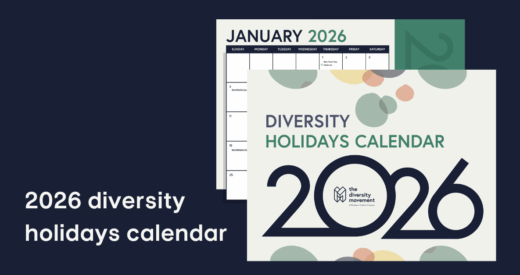Hanukkah, also known as the Festival of Lights, is one of the most well-known and widely-celebrated Jewish holidays in the U.S. Here’s a helpful overview of this joyous celebration:
Why is Hanukkah Celebrated?
Hanukkah reaffirms the ideals of Judaism by commemorating the rededication of the Second Temple in Jerusalem more than two thousand years ago.
What Does the Name Mean?
Hanukkah comes from a Hebrew word meaning “dedication.” It’s not uncommon to see it spelled in a variety of ways in English, including Hanukkah, Chanukah, or Chanukkah.
What’s the Religious Significance?
Hanukkah is considered a minor holiday in the Jewish religion. In fact, it is not mentioned in the Hebrew Bible, or Old Testament. The primary reason Hanukkah has grown to have major cultural visibility in the U.S. is because it occurs around the same time as Christmas.
How Do Jewish People Celebrate?
Jewish people celebrate Hanukkah at home and at synagogues. The most important of all Hanukkah traditions is the lighting of the Hanukkah lamp (hanukkiah) or menorah. Each menorah holds eight candles plus a helper candle (shamash) that is used to light the others.
One candle is lit the first evening, and one additional candle each consecutive evening until all eight candles are aglow the last night. Special blessings are chanted while lighting the candles. It’s customary to place the menorah in a prominent window so that passersby can see it. In recent years, some communities have adopted public menorah-lighting ceremonies as well.
Other traditions associated with Hanukkah include festive meals, songs, games, and small gifts to children, including gelt: chocolate coins wrapped in gold foil. Foods fried in oil, such as potato pancakes (latkes) and doughnuts (sufganiyot) recall the miracle of the oil (see below). Children play a game with a four-sided top called a dreidel. Each side of the top has a Hebrew letter abbreviating a phrase meaning “a great miracle happened there.”
Because Christmas is so prominent in American culture, some Jewish families echo that holiday in their Hanukkah celebrations, for example by exchanging gifts or decorating their homes in a Hanukkah theme.
A Quick History … and the Miracle of the Oil
In the 2nd century BCE, a Greek state known as the Seleucid Empire controlled Western Asia, including the city of Jerusalem. During the reign of King Antiochus IV, the Second Temple — the sacred center of Judaism — was looted. Religious services were stopped, and Judaism was outlawed. This sparked a three-year revolt by Jews to defend their religious beliefs. It was led by Mattathias and his five sons, including the leader Judah, who became known as Judah Maccabee (Judah the Hammer).
In the temple, an oil lamp — called the ner tamid, or eternal light — was kept always burning to signify the ever-presence of God. (All synagogues today share this feature.) According to the Talmud (the primary source of Jewish law written more than 1,500 years ago), when Judah Maccabee entered the Temple after it had been ransacked, he found only one small jar of oil remaining.
Although the jar contained only enough oil to burn for one day, it is said to have miraculously burned for eight days, until more holy oil could be found. This is the reason why Hanukkah is celebrated for eight consecutive days, with one more candle kindled each night of the festival. The Maccabees were ultimately victorious over the Greeks and were able to purify and rededicate the temple. The festival of Hanukkah celebrates these events.
When is Hanukkah This Year?
Hanukkah is celebrated for eight nights and days. Because the timing is determined by the lunar calendar, it may fall any time from late November to late December. Like all Jewish holidays, Hanukkah begins and ends at sunset. In 2021, the first night of Hanukkah is Sunday, November 28th, and Hanukkah concludes at sunset on Monday, December 6th.
How to Acknowledge Hanukkah in the Workplace
Hanukkah is not a “Sabbath-like” holiday, and Jews are not obligated to refrain from work or other activities. Yet, some observant Jews may request to leave the office early so they can kindle the lights promptly at nightfall. Hanukkah is a very joyous time, so feel free to enjoy doughnuts at the office and to wish your coworkers a very happy Hanukkah!
Want to Learn More About a Host of Holidays?
Get a quick, helpful introduction to the many and varied holidays your employees may celebrate by downloading The Diversity Movement’s Diversity Holidays Calendar.






